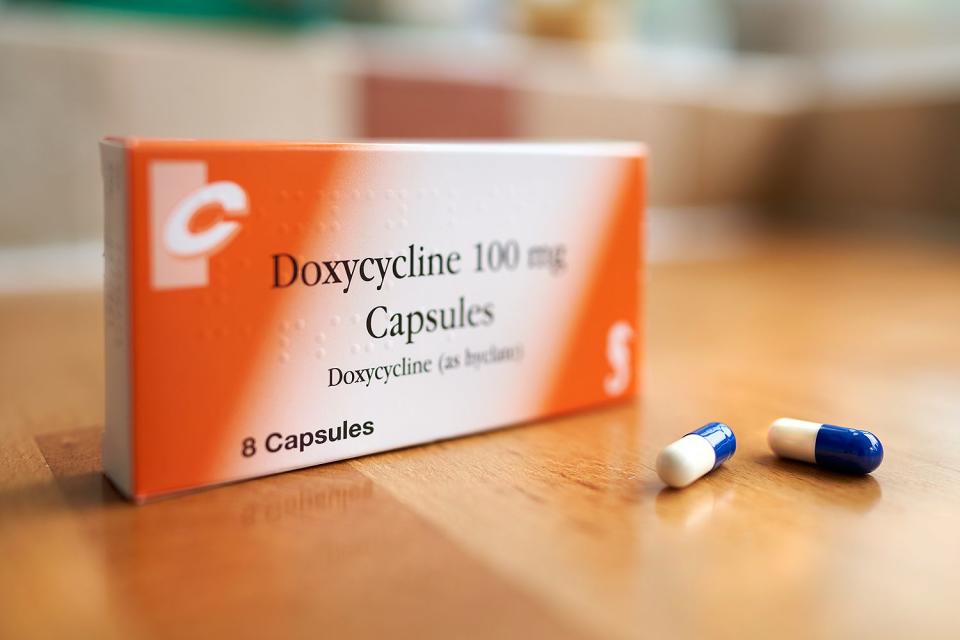Taking an Antibiotic After Unprotected Sex May Help Prevent Sexually Transmitted Infections, CDC Says
As STI rates reach record highs, the CDC is drafting recommendations for some people to take a "morning after" pill to prevent the transmission of chlamydia, gonorrhea, and syphilis infections

Duncan Andison/Shutterstock
The CDC seeks input on new Doxycycline 'morning-after pill' for STI preventionU.S. health officials are urging healthcare providers to consider prescribing a common antibiotic as a morning-after preventive measure to combat the surge in sexually transmitted diseases (STDs).
As STD rates reach record highs, the CDC's draft recommendations endorse the use of doxycycline, citing its proven efficacy in reducing chlamydia, gonorrhea, and syphilis infections. This marks a novel approach in tackling STI prevention, especially for high-risk populations.
The proposal is based on studies indicating that gay and bisexual men who took doxycycline within three days of having unprotected sex were significantly less likely to contract chlamydia, syphilis, or gonorrhea compared to those who did not take the medication post-sex.
Related: Minnesota Pharmacist Sued After Refusing to Fill Woman's Emergency Contraceptive Prescription
More research needs to be done to determine its effectiveness in other groups, such as women and heterosexual individuals, according to Mermin, who oversees the CDC's STD efforts. If approved, this approach would join other STI prevention advancements such as an HPV vaccine and HIV prevention pills.
Doxycycline, a cost-effective antibiotic which has been used for more than 40 years, has been employed in treating conditions such as acne, chlamydia, and Rocky Mountain spotted fever.
A study published in April in The New England Journal of Medicine underscored the effectiveness of doxycycline, reducing the likelihood of gonorrhea, chlamydia, or syphilis diagnoses by two-thirds among men who have sex with men.
This strategy is referred to as post-exposure prophylaxis (PEP).
The CDC proposal clarifies that post-exposure prophylaxis (PEP) entails the administration of medication after a potential exposure to prevent infection, and it is a well-established strategy for the prevention of HIV and other infections.
After the study was published in April, the California Department of Public Health recommended the preventive treatment for use by “all non-pregnant individuals,” noting that it can be effectively taken “within 72 hours after condom-less oral, anal, or vaginal sex.”
In addition, Fenway Health, a Boston-based facility catering to many LGBTQ+ clients, noted that approximately 1,000 patients are currently utilizing doxycycline in this manner, according to Dr. Taimur Khan, the organization's associate medical research director.
For more People news, make sure to sign up for our newsletter!
Read the original article on People.

